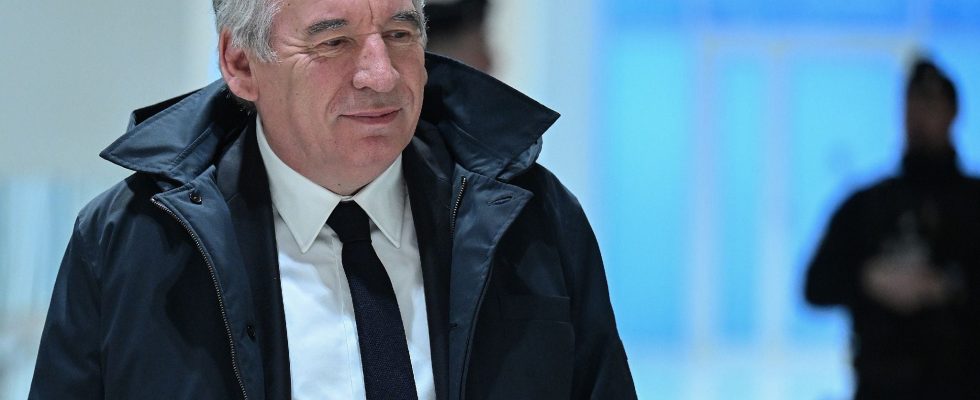It was more of a custom than a golden rule. Emmanuel Macron guaranteed it when he entered the Elysée, before throwing it away. The acquittal of François Bayrou in the European parliamentary assistants affair is a new blow to the Balladur-Bérégovoy jurisprudence, under which an indicted minister must leave the government.
The mayor of Pau, short-lived Keeper of the Seals, zealously applied this practice in June 2017: he resigned as soon as a preliminary investigation was opened, just like Marielle De Sarnez, who died in 2021. The decision of the Paris Criminal Court gives food for thought to the detractors of this tradition. Did it not break the political destiny of François Bayrou, reduced to the rank of evening visitor of the Head of State? “The president hates manhunts, recently noted a Macronist strategist. If Bayrou is cleared, it will give him reason not to have given in for others.”
Ministers indicted… then cleared
Here is the president confirmed in his choices. Because Emmanuel Macron has gradually abandoned this doctrine. Its automaticity placed the destiny of each minister in the hands of justice. The president took control again. Alain Griset, Minister Delegate in charge of Small and Medium Enterprises, only left the government after his conviction in December 2021 for failing to declare part of his assets. The head of state kept Éric Dupond-Moretti and Olivier Dussopt in office, indicted and then acquitted in two separate cases. Exit, however, the Minister of Health, Agnès Firmin Le Bodo, targeted by an investigation for undeclared gifts or Damien Abad, hit by an investigation for attempted rape. Political hand-me-downs, according to the interests of the president.
The latter is jealous of his prerogatives. After the acquittal of the Minister of Justice, Emmanuel Macron denounces in the Council of Ministers these “judicial chronicles”, revealing according to him of an “authority which wants to be in power.” “He considers that the desire of the judicial authority is to transform itself into a power which consists of going behind those who have the power to appoint ministers, in this case him,” notes a former member of the government. Olivier Dussopt thus received a phone call from the Head of State after his acquittal and the decision of the National Financial Prosecutor’s Office to appeal.
On January 16, 2024, Emmanuel Macron theorizes during a press conference his reversal of jurisprudence. He cites the removal in 2014 of individual instructions from the Chancellery to public prosecutors in sensitive cases. This decision strengthened the independence of the judiciary, free to investigate a minister in office. Why then undermine his presumption of innocence? And then, history urges caution. “Ministers have been exonerated, this shows that it is quite fair,” notes the head of state about his new doctrine. He pushed it to its climax by appointing Rachida Dati to Rue de Valois, despite being indicted for “corruption” and “influence peddling”. “A rupture”, deplores François Hollande in an interview with L’Express: “Not only does an indictment not lead a minister to leave the government, but it does not become an obstacle to entering it.”
Conflicting requirements
The debate opposes demands that are as contradictory as they are legitimate. The aspiration to exemplary behavior of the political class and respect for the presumption of innocence. The first requires intransigence, at the risk of injustice. The second calls for moderation, even if it means hindering public action or tarnishing the image of power. “When someone leaves the government, you create a presumption of guilt,” laments a minister. “It’s toxic. You subject people to popular vindictiveness for unestablished facts.” “In people’s minds, the Balladur case law makes the minister indicted guilty,” adds the boss of the Macronist senators François Patriat. Its defenders argue, implicitly, that this injustice is the price to pay for increased confidence in political speech. A kind of necessary evil.
Individual destinies are hostage to this conflict of principles. A minister summed up the dilemma this fall: “If Bayrou is exonerated, we will say that he has potentially lost seven years of government. It’s complicated: should we deprive ourselves of people in case ‘?” The conviction of a minister casts a retrospective stain on his record. The release of an elected official forced to resign fuels a feeling of injustice. Richard Ferrand knows this alternative too well. This close friend of Emmanuel Macron left the government in 2017 for a case of “illegal taking of interest”, before being freed from legal threats. He never found the table of the Council of Ministers.
